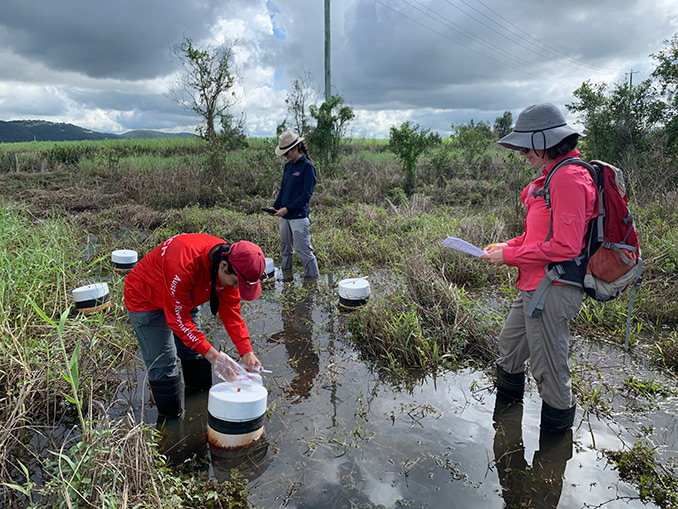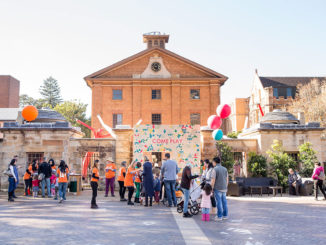A new study led by CSIRO and James Cook University calls for a new coordinated and scaled-up approach to restoring Australia’s coastal and marine ecosystems.
Researchers state that failing to restore lost and degraded coastal ecosystems on a national scale is too important to risk, with climate change pressure increasing.
Released today, A Roadmap for Coordinated Landscape-scale Coastal and Marine Ecosystem Restoration, involved input from more than 170 contributors, including scientists, First Nations people, government agencies and non-governmental agencies, funded by the Australian Government’s National Environmental Science Program.
Co-lead author and JCU TropWATER’s Assoc Prof Nathan Waltham said lack of coordination across projects was a huge problem and one of the biggest barriers stopping large-scale restoration.
“We’re investing lots of money and time in restoration, and because it takes more than ten years to start seeing outcomes from restored sites, it’s imperative restoration projects are done right from the start,” he said.
“At this stage, we’re not seeing enough of a coordinated approach, there is too much red tape, Indigenous groups are not being brought in early enough, funding is scarce, and some projects are not using science-based methods and therefore are not always successful.”
Legislation barriers were found to be a major speed bump in scaling up restoration, causing unanticipated costs, delays in the start date of projects, and even preventing projects from going ahead.
CSIRO’s Dr Megan Saunders and co-lead author said ecological restoration was one of the most critical activities to mitigate and adapt to climate change, with these ‘blue carbon’ coastal ecosystems powerhouses in storing carbon and protecting shorelines from coastal hazards.

Dr Saunders said the report highlights the power of people in shaping restoration goals, with community-led projects found to be often more successful in the long term.
“We need to support and elevate Indigenous-led and co-designed restoration going forward,” she said.
“There is a lot of pride in community, in the people and their land. People drive change – and this is powerful and inspiring.”
The report urges for a national science-based coastal and marine restoration plan that hits environmental and climate change mitigation targets while also providing economic recovery in the form of a skill training pipeline to expand capacity, which includes Indigenous Land and Sea Ranger groups.
The roadmap has the potential to elevate the state, condition and function of Australia’s coastal and marine assets, increasing our capacity to adapt to climate change and improve the social, cultural and economic wellbeing of the Australian people. This is now critical following the release of the Australian Government’s State of the Environment report, where coastal and marine environments were shown to be in poor condition.
“Humanity’s impact on Australia’s coastal regions is severe. The State of the Environment report released this month highlighted this, while climate change continues to escalate these impacts,” Dr Waltham said.
This research is funded by the National Marine Science Program through the Marine and Coastal Hub. This work is Project 1.6: a roadmap for coordinated landscape-scale coastal and marine-ecosystem restoration.
Image: Courtesy of CSIRO


